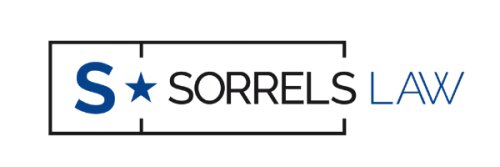Best Office Solutions Lawyers in Texas
Share your needs with us, get contacted by law firms.
Free. Takes 2 min.
Or refine your search by selecting a city:
List of the best lawyers in Texas, United States
About Office Solutions Law in Texas, United States
Office Solutions in Texas covers a broad range of legal issues involving office leases, workplace technologies, equipment procurement, facilities management, and service agreements. For businesses and organizations large or small, navigating office solutions involves complex contracts, regulatory compliance, employment considerations, and sometimes disputes with vendors or service providers. The legal landscape in Texas affects how businesses set up, maintain, and upgrade their office environments, impacting everything from real estate transactions to technology licensing and employer-employee relationships.
Why You May Need a Lawyer
Legal issues surrounding office solutions can arise in many circumstances. Some common situations where you may require legal help include:
- Reviewing or negotiating office lease agreements and subleases
- Drafting or reviewing contracts for office equipment purchase or lease
- Addressing compliance with workplace safety regulations
- Resolving disputes with vendors, contractors, or suppliers
- Ensuring contracts meet data privacy and cybersecurity standards related to workplace technology
- Addressing employment law concerns when changing office layouts or implementing remote work solutions
- Advising on regulatory requirements for accessibility and building codes
- Assisting with intellectual property concerns regarding office software and systems
An experienced attorney can help you avoid costly mistakes, protect your rights, and ensure compliance with Texas laws.
Local Laws Overview
Texas law governs many aspects related to office solutions, including commercial property leases, workplace safety, and data protection. Here are some key areas:
- Commercial Leasing: Texas real estate law regulates commercial leases, including the terms, enforcement, and remedies for breach. Lease agreements must comply with local ordinances and state statutes.
- Workplace Safety: The Texas Department of State Health Services and the Occupational Safety and Health Administration (OSHA) set standards for office safety and health practices.
- Employment Law: Employers must comply with Texas Labor Code and federal statutes regarding workspace modifications, telecommuting policies, discrimination, and accessibility.
- Contracts and Procurement: Contract law in Texas requires that office solutions agreements be clear and enforceable. Special attention is given to warranties, service level agreements, and liability clauses.
- Data Security and Privacy: Texas laws such as the Texas Privacy Protection Act regulate the secure handling of employee and client information in office software and technology platforms.
- Building Codes and Accessibility: Cities in Texas adopt building codes and standards that affect office layouts, accessibility for individuals with disabilities, and fire safety compliance.
Understanding these legal frameworks is essential for anyone managing or operating office solutions in Texas.
Frequently Asked Questions
What are the most important things to look for in a commercial office lease in Texas?
Look for clear terms regarding rent, lease duration, responsibilities for repairs and maintenance, subleasing rights, termination clauses, and dispute resolution methods. Always have an attorney review the lease before signing.
Can I negotiate my lease or service agreements?
Yes, most commercial leases and service contracts are negotiable. A lawyer can assist in negotiating better terms and identifying potential pitfalls.
What are my rights if my office vendor fails to deliver as promised?
Your rights depend on the terms of your contract. You might be entitled to damages or termination of the agreement. An attorney can review your contract and advise on the best action.
Are there special regulations for office accessibility in Texas?
Yes, both state and federal laws require accessibility for persons with disabilities. Texas follows the Americans with Disabilities Act (ADA) and additional local codes.
What should I do if I have a workspace-related dispute with an employee?
Address disputes promptly, document any incidents, and follow internal dispute resolution policies. Consult with a Texas employment lawyer before taking adverse action.
How can I ensure my office solutions meet data privacy standards?
Implement robust cybersecurity policies, vet software vendors, and ensure compliance with Texas data privacy laws and industry standards. Legal counsel can help tailor privacy policies to your business’s needs.
What responsibilities do I have regarding workplace safety?
Employers must maintain a safe work environment under OSHA and Texas laws. Regular safety inspections and training are recommended.
Can I assign or sublet my office space in Texas?
Your ability to assign or sublet depends on your lease agreement. Many leases restrict these actions or require landlord approval.
What happens if my office lease is terminated early?
If you terminate early without proper cause, you may owe penalties or rent for the remaining term. Review your lease and seek legal advice to understand your obligations.
Where can I find official forms and guidance related to office solutions?
You can access rental forms, building codes, and workplace safety guidelines through state agencies or local government offices. Legal representatives can also provide tailored forms.
Additional Resources
Residents and businesses seeking legal support in office solutions may find these resources helpful:
- Texas Department of Licensing and Regulation - oversight for building codes and facilities
- Texas Secretary of State - business filings and search
- Texas Workforce Commission - employment law resources
- U S Small Business Administration (SBA) Texas District Offices - business support
- Local chamber of commerce organizations
- State Bar of Texas - lawyer referral services
- Occupational Safety and Health Administration (OSHA) Texas Offices
For city-specific regulations, check with local city or county offices, such as the City of Houston or Dallas permitting departments.
Next Steps
If you need legal assistance with office solutions in Texas:
- Identify the main issue or concern you are facing in your office solution
- Gather relevant documents, contracts, and correspondence
- Make note of key dates, conversations, and details related to your issue
- Contact a Texas attorney experienced in real estate, business, or employment law depending on your matter
- Request a consultation to discuss your situation and get an overview of your legal options
- Follow your attorney’s advice for resolving the issue or moving ahead with contracts or negotiations
Taking proactive steps and consulting with legal professionals can save you time, money, and stress when dealing with office solutions in Texas.
Lawzana helps you find the best lawyers and law firms in Texas through a curated and pre-screened list of qualified legal professionals. Our platform offers rankings and detailed profiles of attorneys and law firms, allowing you to compare based on practice areas, including Office Solutions, experience, and client feedback.
Each profile includes a description of the firm's areas of practice, client reviews, team members and partners, year of establishment, spoken languages, office locations, contact information, social media presence, and any published articles or resources. Most firms on our platform speak English and are experienced in both local and international legal matters.
Get a quote from top-rated law firms in Texas, United States — quickly, securely, and without unnecessary hassle.
Disclaimer:
The information provided on this page is for general informational purposes only and does not constitute legal advice. While we strive to ensure the accuracy and relevance of the content, legal information may change over time, and interpretations of the law can vary. You should always consult with a qualified legal professional for advice specific to your situation.
We disclaim all liability for actions taken or not taken based on the content of this page. If you believe any information is incorrect or outdated, please contact us, and we will review and update it where appropriate.
Browse office solutions law firms by city in Texas
Refine your search by selecting a city.















